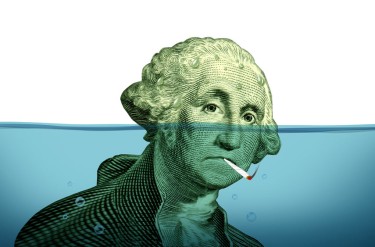Cannabis News
How Do You Get the Weed Smell Out of Your Car Fast? (Yes, Roll Down Your Windows to Start…)
Published
9 months agoon
By
admin

The unmistakable smell of weed can linger in your car long after you’ve finished smoking, creating an uncomfortable environment and potentially raising unwanted attention from passengers, law enforcement, or even colleagues. This lingering odor can be particularly problematic if you share your vehicle with others or use it for professional purposes. Whether you’re dealing with the residual scent after a road trip, an occasional smoke session, perhaps you hide cannabis in your car somewhere, or simply want to maintain a fresh-smelling car for your daily commute, addressing this issue promptly is essential. Fortunately, there are several effective methods to eliminate weed smell from your vehicle. This article provides a detailed, step-by-step guide to removing the odor, ensuring your car smells clean and fresh, and allowing you to drive with confidence and peace of mind.
Understanding that Weed Smells
Before diving into the solutions, it’s essential to understand why the smell of weed is so persistent. Understanding why weed smells persistently is key to eliminating it effectively. Cannabis contains compounds called terpenes, responsible for its distinctive aroma. When smoked, these terpenes, along with other combustion byproducts, cling to surfaces and fabrics in your car, making the smell difficult to remove.
Terpenes are highly volatile, spreading quickly and permeating the car’s interior. Smoke from cannabis contains a mix of volatile organic compounds (VOCs), resins, and particulate matter, all contributing to the strong odor. Fabrics, upholstery, leather, and plastic inside a car can trap these particles, with fabrics being particularly prone to absorbing and holding odors deeply.
Steps to Remove Weed Smell from Your Car
1. Immediate Actions:
The first step in eliminating weed smell is to take immediate actions that prevent the odor from settling deeply into your car’s fabrics and surfaces.
Open all windows and doors to allow fresh air into the car. If possible, park in a well-ventilated area or a location with a good breeze.
-
Remove Source of the Smell: Discard any remaining weed, roaches, or ash properly. Empty the car ashtray and dispose of any related paraphernalia.
2. Deep Cleaning the Interior:
A thorough cleaning of your car’s interior is crucial for removing embedded odors. You can deep clean your car by doing the following:
-
Vacuum All Surfaces: Use a vacuum cleaner to thoroughly clean seats, carpets, and floor mats. Pay special attention to crevices and and-to-reach areas where ash and particles may have settled.
-
Clean Hard Surfaces: Wipe down all hard surfaces such as the dashboard, console, and doors with a mixture of water and vinegar or an all-purpose cleaner. Ensure you clean vents and any plastic surfaces where smoke may have settled.
-
Shampoo Upholstery and Carpets: Use a carpet and upholstery cleaner to deep clean fabric surfaces. You can Consider renting a steam cleaner for a more effective clean.
3. Odor Neutralizers:
After cleaning, use odor-neutralizing agents to remove any remaining smells. Such as:
-
Baking Soda: Sprinkle baking soda on carpets and seats, let it sit for several hours or overnight, and then vacuum it up. Baking soda is known for its odor-absorbing properties.
-
Activated Charcoal: Place bowls of activated charcoal in your can for a few days. Activated charcoal is highly effective at absorbing odors.
-
White Vinegar: Place a bowl of white vinegar in the car overnight. Vinegar is a natural deodorizer that can help neutralize strong odors.
4. Air Fresheners and Odor Eliminators:
Use products specifically designed to eliminate and freshen the air. Products such as:
-
Odor-Eliminating Sprays: Use sprays that are designed to neutralize odors, rather than just mask them. Look for products with enzymes that break down odor molecules.
-
Car Air Fresheners: Install a car air freshener to maintain a pleasant scent. Opt for ones with strong, long-lasting fragrances.
5. Professional Cleaning Options: For persistent odors, professional cleaning services may be necessary. Such professional cleaning may include
-
Detailing Services: Hire a professional car detailing service. Detailers have specialized equipment and cleaning agents to thoroughly clean and deodorize your car.
-
Ozone Treatment: Consider an ozone treatment, which uses ozone gas to neutralize odors at a molecular level. This is a highly effective method for eliminating strong smells.
Preventive Measures
Once you’ve successfully eliminated the weed smell from your car, implementing preventive measures is crucial to maintaining a fresh and clean environment. Here are some effective strategies to keep your car smelling pleasant and odor-free:
-
Smoke Outside the Car: The most straightforward way to prevent weed smell in your car is to avoid smoking inside it altogether. If you must smoke, do so outside and away from the vehicle. This simple habit can significantly reduce the chances of odors permeating the car’s interior and clinging to fabrics and surfaces.
-
Use a Car Air Purifier: Investing in a high-quality car air purifier can make a significant difference in maintaining clean and fresh air inside your vehicle. These devices work by continuously filtering and purifying the air, removing not only weed odor but also other unpleasant smells and airborne particles. Look for purifiers with activated carbon filters, as they are particularly effective at neutralizing strong odors.
-
Regular Cleaning: Establishing a regular cleaning routine for your car is essential in preventing odors from building up over time. Make it a habit to vacuum the interior frequently, paying special attention to the seats, carpets, and floor mats where odors can easily become trapped. Wipe down all surfaces with a suitable cleaner to remove any residue that could contribute to lingering smells. Additionally, consider using odor-neutralizing products, such as sprays or sachets, to keep the air fresh between cleanings.
-
Ventilation: Ensure that your car is well-ventilated by opening windows or sunroofs periodically, especially after smoking. Allowing fresh air to circulate can help dissipate any lingering odors and keep the interior environment fresh.
-
Storage of Smoking Accessories: If you carry smoking accessories such as pipes, rolling papers, or lighters in your car, make sure they are stored in airtight containers. This can prevent residual smells from escaping and permeating the car’s interior.
-
Use of Odor Absorbers: Place odor-absorbing materials such as activated charcoal bags or baking soda containers in your car. These substances are excellent at absorbing and neutralizing odors, helping to maintain a pleasant scent inside the vehicle.
-
Regular Maintenance: Schedule regular professional detailing sessions for your car. Professional detailers have specialized tools and products designed to thoroughly clean and deodorize your vehicle, ensuring that any potential odor sources are addressed effectively.
By incorporating these preventive measures into your routine, you can significantly reduce the risk of weed odors becoming a recurring issue in your car. Consistency and diligence in maintaining a clean and well-ventilated interior will ensure that your vehicle remains a comfortable and pleasant space, free from any unwanted smells.
Conclusion
Eliminating the smell of weed from your car requires a combination of immediate action, thorough cleaning, and the use of effective odor-neutralizing agents. It’s not just about masking the scent but removing the source of the odor entirely. By following these steps, you can ensure that your car smells fresh and clean, free from any lingering cannabis odor. Additionally, adopting preventive measures, such as using air fresheners or odor absorbers regularly, will help maintain a pleasant environment in your vehicle. Whether you opt for DIY methods or seek professional detailing services, the key is consistency and diligence. Regular maintenance and quick responses to any new odors will ensure that your car remains a comfortable and welcoming space for you and your passengers. Taking these proactive steps will not only keep your car smelling great but also enhance your overall driving experience and peace of mind.
YOUR CAR SMELLS LIKE MARIJUANA, READ ON…
Cannabis News
The Top Destinations for Cannabis Enthusiasts and Fans
Published
21 hours agoon
March 25, 2025By
admin
As the legalization of cannabis continues to spread across the United States, a new form of tourism has emerged, attracting enthusiasts from all over the country and beyond. Cannabis tourism offers a unique opportunity to explore the culture, history, and various products associated with cannabis. This article delves into some of the top destinations for cannabis enthusiasts, highlighting what makes each location special.
Denver has long been considered the epicenter of cannabis culture in the U.S. With its progressive laws and vibrant scene, it attracts both seasoned users and curious newcomers. The city boasts a plethora of dispensaries, cannabis tours, and events that cater to all tastes. Beyond the cannabis offerings, Denver’s rich history and stunning mountain backdrop make it a desirable destination for all types of travelers, ensuring that there is something for everyone to enjoy.
Visitors can explore a wide range of dispensaries, each offering unique products, from edibles to concentrates. Many dispensaries also provide guided tours, allowing tourists to learn about the cultivation process and the different strains available. These tours often include tastings, giving participants a firsthand experience of the products. Additionally, some dispensaries host educational workshops where guests can delve deeper into the science of cannabis, including its medicinal properties and the various methods of consumption. This blend of education and enjoyment makes the experience not only fun but also enriching.
Denver is home to several cannabis-friendly hotels and rentals, where guests can enjoy their cannabis in a comfortable environment. These accommodations often provide amenities such as rooftop lounges, designated smoking areas, and even cannabis-themed events, enhancing the overall experience for visitors. In addition to these features, many cannabis-friendly lodgings offer curated experiences, such as guided hikes through the nearby Rockies followed by a relaxing evening of cannabis-infused dining. This combination of outdoor adventure and cannabis enjoyment allows guests to fully immerse themselves in the local culture while taking in the breathtaking scenery that Denver has to offer.
2. Chicago, Illinois
Illinois, with its progressive cannabis laws and vibrant urban culture, has become a key destination for cannabis tourism in the Midwest. Since legalizing recreational cannabis in 2020, the state has developed a thriving industry that attracts both locals and visitors.
Chicago, the state’s largest city, offers a range of cannabis-related experiences. From high-end dispensaries to immersive cannabis lounges, visitors can explore a variety of options. Whether you’re looking for a boutique Illinois dispensary specializing in craft cannabis or a large retail space with an extensive selection of products, Chicago has something for every enthusiast. Some dispensaries provide educational experiences, including guided product tastings and expert-led discussions on different strains and consumption methods.
Cannabis and Cultural Attractions
One of the unique aspects of cannabis tourism in Illinois is its connection to the state’s cultural and artistic attractions. Visitors can explore Chicago’s famous museums, take a scenic stroll along Lake Michigan, or enjoy live jazz and comedy while partaking in cannabis-friendly experiences. Additionally, some businesses offer cannabis-infused dining experiences, where guests can enjoy gourmet meals enhanced with cannabis pairings.
Illinois hosts various cannabis events throughout the year, including industry expos, educational seminars, and cannabis-friendly social gatherings. These events provide opportunities to learn more about the industry while connecting with other enthusiasts in a welcoming environment.
Los Angeles is another hotspot for cannabis tourism, combining the allure of Hollywood with a rich cannabis culture. The city offers a diverse range of experiences, from upscale dispensaries to laid-back cannabis lounges.
In Los Angeles, visitors can engage in unique experiences such as cannabis-infused cooking classes, art galleries featuring cannabis-themed works, and yoga sessions that incorporate cannabis. These activities not only promote relaxation but also foster a deeper understanding of the plant’s cultural significance.
The city hosts numerous cannabis events throughout the year, including festivals, expos, and educational seminars. These gatherings provide a platform for enthusiasts to connect, share knowledge, and celebrate the evolving cannabis culture. Major events like the High Times Cannabis Cup attract thousands of visitors each year, showcasing the best products and innovations in the industry.
Seattle is known for its vibrant arts scene, coffee culture, and stunning natural landscapes. Since the legalization of recreational cannabis, it has also become a prominent destination for cannabis tourism. The city offers a unique blend of outdoor activities and cannabis experiences.
For those who enjoy the great outdoors, Seattle provides ample opportunities for hiking, kayaking, and exploring the beautiful Pacific Northwest. Many tour companies offer cannabis-friendly outdoor excursions, allowing visitors to enjoy nature while partaking in their favorite products. Imagine hiking through lush forests or enjoying a sunset over Puget Sound, all while savoring the effects of cannabis.
Seattle’s dispensaries are known for their quality and variety. Many feature locally sourced products, emphasizing the importance of supporting local growers. Visitors can find everything from artisanal edibles to high-quality flower, often accompanied by knowledgeable staff who can provide recommendations based on individual preferences.
Portland is celebrated for its quirky culture, craft beer, and, of course, cannabis. The city has embraced cannabis tourism, offering a wide range of experiences for enthusiasts looking to explore the local scene.
Portland’s craft cannabis scene mirrors its craft beer culture, with numerous small-scale growers and dispensaries focusing on quality and sustainability. Many dispensaries offer tours and tastings, allowing visitors to sample local strains and learn about the cultivation process. This hands-on approach fosters a deeper appreciation for the plant and its various products.
Food lovers will find plenty to enjoy in Portland, as the city boasts a thriving culinary scene that often incorporates cannabis. From infused dining experiences to cannabis cooking classes, visitors can indulge in delicious meals while exploring the benefits of cannabis-infused cuisine.
Las Vegas is known for its entertainment, nightlife, and extravagant experiences. Since the legalization of recreational cannabis, the city has also become a popular destination for cannabis tourism, offering a unique blend of luxury and cannabis culture.
Las Vegas is home to some of the most luxurious dispensaries in the country. Many of these establishments offer a high-end shopping experience, complete with knowledgeable staff and exclusive products. Visitors can explore a wide range of options, from premium flower to designer edibles, all while enjoying the glitz and glamour of Las Vegas.
The city has also seen the rise of cannabis lounges, where visitors can enjoy their cannabis in a social setting. These lounges often host events, including live music and art showcases, creating a vibrant atmosphere for cannabis enthusiasts. Major events like the Cannabis Cup Las Vegas draw large crowds, making it a must-visit for those looking to immerse themselves in the local cannabis culture.
Cannabis tourism in the U.S. is rapidly evolving, with various destinations offering unique experiences for enthusiasts. From the vibrant streets of Denver to the luxurious dispensaries of Las Vegas, there is something for everyone. As more states continue to embrace legalization, the opportunities for cannabis tourism will only expand, making it an exciting frontier for travelers seeking to explore the culture and community surrounding cannabis.
CANNABIS TOURISM, READ ON…
WILL LAS VEGAS OR NEW YORK RULE CANNABIS TOURISM IN THE USA?
Cannabis News
Is Inflation Good or Bad for the Cannabis Industry?
Published
22 hours agoon
March 25, 2025By
admin

The Impact Of Inflation On Cannabis Sales
What You Can Do About Rising Costs
Inflation affects every industry, including cannabis. However, the impact on the weed industry has surprisingly been mixed in nature because the market is significantly different compared to other consumer-driven industries.
For example, the prices of weed have seen a big drop over the past few years, even when we were right smack in the middle of a high inflation period. To drive home a point, from January 2021 to April 2022, wholesale prices of weed flower saw a 46% reduction, while extraction-grade cannabis buds dropped by 55%. Meanwhile, Oregon and Michigan’s cannabis markets saw a drop in prices due to a glut in supply, as well as increased competition among dispensaries.
However, things are looking a bit more glum lately: according to a recent poll, 2 out of 3 cannabis consumers said they now spend less cash on cannabis due to inflation. The poll, which was exclusively shared with Marijuana Moment, was conducted by NuggMD, a marijuana telehealth platform. It involved interviews with 518 cannabis consumers, which took place from February 27 to March 2.
They asked cannabis consumers about their recent spending habits when it came to cannabis, and some 66% of them admitted to putting less cash out now due to higher costs. There was also 34% of consumers who said that despite inflation, they have made no changes to their spending on marijuana. When it comes to the decrease in spending, it isn’t clear if it’s because of the higher prices, or if it’s because of the state of the economy, or a mix of both factors.
“Our poll establishes that inflation is hitting the cannabis consumers hard, which should come as no surprise,” explains Andrew Graham, NuggMD’s head of communications. “Recent polling from Pew shows the share of US adults who have concerns about healthcare affordability has increased by 10 percentage points compared to last year. And, last June, medical inflation began growing faster than overall inflation for the first time since 2021,” he said.
It’s easy to point to rising cannabis costs as a major factor that makes it more difficult for consumers to access essential goods, such as medical marijuana. To add salt to injury, cannabis is still a Schedule 1 substance at the federal level, which means that it can’t be included in insurance coverage. Patients have to pay with their own cash, adding to a seemingly never-ending growth of medical bills.
“Across the board, rising costs are clearly making it harder for Americans to access the health and wellness care they need,” Graham said.
He suggests that IRS Code 280E should be ended by Congress, which will mean that cannabis businesses must pay up to 80% tax rate. “If lawmakers continue to punt on 280E, then the policy fix could involve shifting the cost burden away from the consumer by mandating insurance policies cover cannabis used to treat qualifying conditions under state-legal programs, adds Graham. The tax savings could then be funneled towards building new dispensaries in areas that lack access, which can also reduce costs associated with travel. Other significant benefits include better wages for dispensary staff, and profits can be reinvested into research and development.
What Medical Marijuana Patients Can Do
While it might feel like there’s no other choice but to tighten one’s belt, it’s possible to get creative with your cannabis supply and stretch your budget, despite the rising prices these days. Here are some things that cannabis consumers an medical marijuana patients can do:
-
Buy in bulk: Purchasing cannabis flower in bulk is one of the most efficient ways to reduce the cost per gram. Licensed dispensaries offer great deals and discounts for buying in bulk, which can help stretch your cash.
-
Buy smaller, budget brands: If you consume other types of cannabis products such as vapes, edibles, oils, and drinks, opt for brands that are less expensive. As long as you are buying from a licensed dispensary, you can have peace of mind that you’re buying quality products that don’t compromise quality.
-
Experiment with methods that offer bang-for-buck when it comes to your hit: Some cannabis consumption techniques are more cost-effective compared to smoking. If you’re only used to smoking weed, periods of high inflation are a good time to experiment with methods that are novel for you. For example, edible cannabis products can last up to 4 to 8 hours long, while microdosing enables you to experience the therapeutic benefits of cannabinoids more frequently but in much smaller doses.
-
Learn how to grow your own weed: If you’re able, live in a state that allows home cultivation, and have the budget as well as space, growing your own weed is a fantastic way to become self-sufficient. Despite the initial expenses related to setup costs, home growers can save as much as 75% on flower costs in the long run.
-
Keep an eye out for the potency ratio: When shopping at a dispensary, look for products that offer great value when it comes to potency per dollar.
Employing these strategies can help cannabis consumers and patients alike save some money when prices are skyrocketing.
Conclusion
Despite the rising prices and economic challenges of the current times, we can look towards the silver linings – opportunities that exist in the current cannabis landscape. It’s now easier than ever for consumers to find quality products that don’t have to cost an arm an a leg, while big companies are well-positioned to grow their market share. We can also hope that federal rescheduling is in our near future, and hope that the POTUS may have a change of heart somewhere along the way.
IS CANNABIS INFLATION PROOF, READ ON…


Wake up frenz…you’re in a War Right Now!
Let me be crystal clear about something – the War on Drugs isn’t some relic from the Nixon era that ended when Colorado and Washington first legalized weed. It’s happening right now, as you’re reading this. And if you think I’m being paranoid, stick with me for a minute.
I’ve been documenting the signs of escalation in this war for years, but today I want to address the elephant in the room: this has never been a “War on Drugs.” Drugs don’t get arrested. Drugs don’t lose their jobs. Drugs don’t get their kids taken away. Drugs don’t have their assets seized or their voting rights stripped.
This has always been a war on people – specifically, on YOU.
Despite cannabis enjoying unprecedented public support (70% of Americans favor legalization), the battlefield has simply shifted. The opponents haven’t surrendered; they’ve just changed tactics. As Paul Armentano brilliantly outlines in his recent MarijuanaMoment.net op-ed, cannabis consumers are being targeted by both Republican and Democratic lawmakers, just in different ways.
In this article, we’ll dissect Armentano’s observations about how politicians from both sides of the aisle are undermining legalization efforts – from Republicans outright nullifying voter initiatives to Democrats taxing legal markets into oblivion. More importantly, we’ll explore how we, as cannabis consumers, can start rattling the cages that keep our bodies classified as government property rather than our own sovereign domains.
Time to wake up, frenz. You’re still on the battlefield whether you realize it or not.
Paul Armentano’s recent op-ed for Marijuana Moment reads like a battle report from the frontlines. As NORML’s Deputy Director, he’s been watching the war unfold from a privileged vantage point, and what he sees should alarm every cannabis consumer in America.
On the Republican side, we’re witnessing something particularly insidious – the outright nullification of democracy itself. In South Dakota, GOP lawmakers nearly repealed a voter-approved medical cannabis law by a single vote. Nebraska’s Republican attorney general is urging lawmakers to simply ignore election results. In Ohio, Senate Republicans are gutting the voter-approved legalization by limiting home growing, imposing arbitrary THC caps, and – most disturbing – creating new crimes for adults who share cannabis.
But Democrats aren’t exactly riding to our rescue. As Armentano points out, in blue states like New Jersey, Maryland, and California, Democratic governors are treating cannabis consumers as walking ATMs. Governor Murphy wants to quintuple cannabis taxes in New Jersey. Maryland is looking to double the special sales tax on marijuana purchases. These aren’t just annoyances – they’re calculated moves that push consumers back to the illicit market, undoing the very benefits legalization was supposed to create.
This patchwork approach to legalization has created what amounts to feudal kingdoms where local rulers can target cannabis users however they please. The hodgepodge of conflicting state, county, and municipal laws turns normal people into criminals simply by crossing invisible boundaries. In Texas, the attorney general is actively suing cities that have decriminalized possession, forcing local governments to disregard voter initiatives out of fear of litigation.
Let’s be absolutely clear: until cannabis is completely removed from the Controlled Substances Act, we will remain at the mercy of lawmakers and the special interests that fund their campaigns. The pharmaceutical lobby, prison industry, and alcohol/tobacco interests all have a stake in keeping cannabis users criminalized or overtaxed. These industries pour millions into campaign coffers, and politicians respond accordingly.
While we don’t yet know how the Trump administration might approach cannabis if returned to power, his rhetoric about drug cartels and terrorists raises serious concerns. History has taught us that governments love nothing more than a good massacre or crisis to justify draconian new laws. The escalation of militarized anti-cartel operations in Mexico could easily become the pretext for a renewed crackdown on cannabis domestically.
Remember how quickly civil liberties evaporated after 9/11? How the Patriot Act was rammed through while the rubble was still smoking? I fear we’re one border incident away from politicians using cartel violence as justification to roll back the fragile progress we’ve made.
Armentano’s warning couldn’t be clearer: “Now is not the time to become complacent, nor is it a time to presume that marijuana will somehow legalize itself.” The war continues, the battle lines have shifted, and cannabis consumers remain squarely in the crosshairs – whether they’re being shot at by Republicans with repeal efforts or by Democrats with taxation schemes.
Those of us who came of age during the heightened drug war hysteria of the 90s and early 2000s have a certain skill set today’s younger cannabis users might lack. We remember walking around with eye drops in our pockets, perfecting the art of the towel-under-the-door, and speaking in elaborate coded language over landlines we assumed were tapped. Paranoia wasn’t just a side effect – it was a survival mechanism.
Back then, smoking a joint carried a tangible subversive thrill. It wasn’t just about getting high; it was an act of rebellion against a system we knew was lying to us. There was something almost romantic about it – echoes of the 60s counterculture filtered through hip-hop, Cypress Hill albums, and Kevin Smith movies. Being a stoner meant belonging to a secret society with its own language, rituals, and heroes.
But here’s the hard truth many of us forgot along the way: until your rights are constitutionally enshrined, they can be taken from you just as arbitrarily as they were granted. The progress we’ve celebrated – medical programs, recreational markets, decriminalization – exists at the pleasure of politicians who see us either as moral degenerates or walking tax revenue.
The Controlled Substances Act isn’t just bad policy; it’s fundamentally a pharma-sponsored slaver’s contract. That sounds hyperbolic until you examine the 13th Amendment’s insidious loophole: slavery was abolished “except as punishment for a crime.” By criminalizing what you put in your own body, the state created a legal framework to quite literally own you – to seize your property, your liberty, your vote, and your labor.
When Democrats impose crippling tax burdens on legal cannabis, they aren’t just being greedy – they’re sabotaging the entire experiment. These taxes push consumers back to the illicit market, creating the very problems prohibitionists then point to as evidence that “legalization doesn’t work.” It’s a self-fulfilling prophecy, a rigged game where the house always wins.
The bitter reality? We’ve never experienced true legalization in our lifetimes. What we have is a tenuous, compromised version that leaves millions still vulnerable to life-altering criminal penalties while allowing politicians to boast about their progressive credentials.
This isn’t your parents’ drug war anymore – it’s evolved, adapted, and in some ways become more insidious precisely because it masquerades as progress while maintaining the fundamental power dynamic: the state still claims ownership over your consciousness.
Earlier generations of cannabis activists passed the torch to us. They fought the brutal front lines – facing decades in prison, having their children taken away, being denied housing and employment. We owe it to them, and to future generations, to finish what they started.
Don’t be lulled into complacency by dispensaries with clever branding and budtenders with tattoos. Don’t mistake the ability to buy government-approved cannabis products for actual freedom. And don’t expect politicians from either party to respect your autonomy unless you make it politically painful not to.
The war continues. The question is: will you be a casualty, a conscientious objector, or a freedom fighter?
Your body. Your mind. Your choice. But only if you’re willing to demand it.
WHO IS BLOCKING LEGALIZATION, READ ON…

Food Asphyxiation Is Way More Dangerous Than Cannabis

Outdoor Marijuana Grows Are Better All The Way Around

Shop 50% off at Story Cannabis this 420

Rolling Releaf: 420 deals delivered – all April long

Shop local this 420 at Simply Pure

25% off award-winning seeds from Fast Buds for 420

Skip the crowds and start your 420 early with nuEra
Tap into 420 and snag the best deals at Sesh NYC

Celebrate 420 with new deals throughout the week at Lionheart Cannabis

Make 420 mega with 30% off from Grön

Distressed Cannabis Business Takeaways – Canna Law Blog™

United States: Alex Malyshev And Melinda Fellner Discuss The Intersection Of Tax And Cannabis In New Video Series – Part VI: Licensing (Video)

What you Need to Know

Drug Testing for Marijuana – The Joint Blog

NCIA Write About Their Equity Scholarship Program

It has been a wild news week – here’s how CBD and weed can help you relax

Cannabis, alcohol firm SNDL loses CA$372.4 million in 2022

A new April 20 cannabis contest includes a $40,000 purse

Your Go-To Source for Cannabis Logos and Designs

UArizona launches online cannabis compliance online course
Trending
-

 Cannabis News2 years ago
Cannabis News2 years agoDistressed Cannabis Business Takeaways – Canna Law Blog™
-

 One-Hit Wonders2 years ago
One-Hit Wonders2 years agoUnited States: Alex Malyshev And Melinda Fellner Discuss The Intersection Of Tax And Cannabis In New Video Series – Part VI: Licensing (Video)
-

 Cannabis 1012 years ago
Cannabis 1012 years agoWhat you Need to Know
-

 drug testing1 year ago
drug testing1 year agoDrug Testing for Marijuana – The Joint Blog
-

 Education2 years ago
Education2 years agoNCIA Write About Their Equity Scholarship Program
-

 Cannabis2 years ago
Cannabis2 years agoIt has been a wild news week – here’s how CBD and weed can help you relax
-

 Marijuana Business Daily2 years ago
Marijuana Business Daily2 years agoCannabis, alcohol firm SNDL loses CA$372.4 million in 2022
-

 California2 years ago
California2 years agoA new April 20 cannabis contest includes a $40,000 purse













